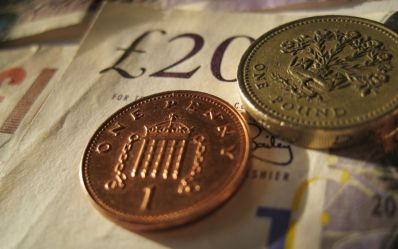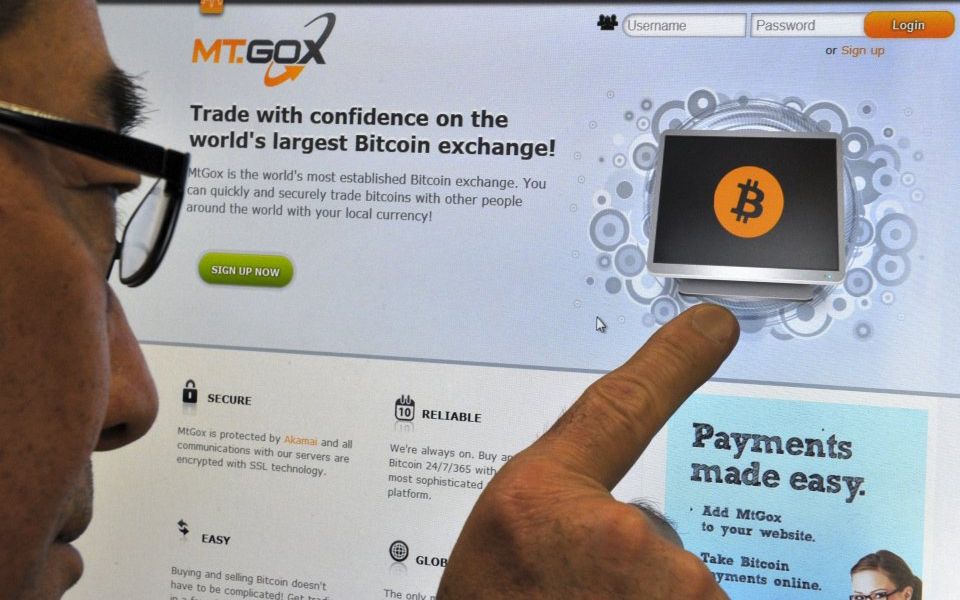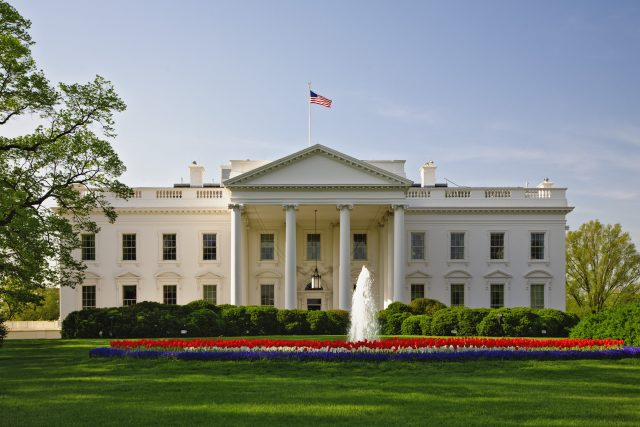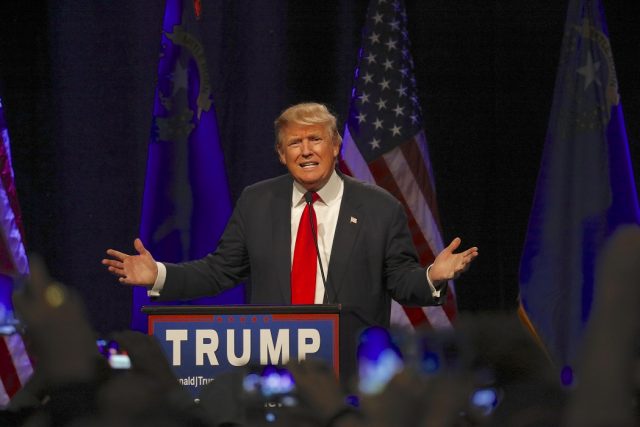Using Blockchain to Keep Public Data Public

In early February, President Trump’s administration made a change to the White House website. The site’s digital updates are often small and insignificant — updating a photo, fixing a broken link — and therefore may go unnoticed. But this one was different, and it could have an impact on every single American. The update eliminated the White House’s open data.
On the surface, those 9 gigabytes of data sets may seem inconsequential: They include White House visitor logs, the titles and salaries of every White House employee, and government budget data. But that information helps to ensure transparency in government. It helps reporters and citizens figure out who has the ear of the president and his staff, for example. In response to this very issue, Democrats have introduced the Make Access Records Available to Lead American Government Openness Act, or MAR-A-LAGO Act, legislation that would require the Trump administration to publish visitor logs for the White House and any other location where the president regularly conducts official business.
The Obama administration drastically increased the openness of government data, codifying it with an executive order that made open, machine-readable data the new default for government information, to ensure that we have transparency in government. So although the Trump administration’s moves are a return to the opacity of past administrations, it’s a move in the wrong direction. Perhaps most important is what this could mean for the U.S. government’s entire open data strategy, as the administration controls the information that so many businesses, organizations, and individual Americans depend on daily.
If you checked the weather this morning, you relied on information that was supplied by government open data. Used GPS to get to a meeting? That information was supplied by government open data. Received an alert that the baby crib you purchased was recalled? That, too, was supplied by government open data. Unfortunately, it’s not just the Trump administration that has been caught deleting or altering important data. Companies are doing it too. Volkswagen cheated on emissions tests. Uber showed fake information about available drivers to government employees. And Airbnb was caught purging more than 1,000 listings, which were in violation of New York state law, just before it shared its data with the public as part of a pledge “to build an open and transparent community.”
Data is under attack. And it is the leaders of our government and economy who are waging this war. They have made it acceptable to manipulate raw data in a way that benefits them financially or politically — and it has lowered public confidence in the veracity of information. These are institutions we rely on every day to make the policy and business decisions that affect our economy and society at large. If anyone is allowed to simply change a number or delete a data set, who — and what — are citizens supposed to believe? How can we get our data back? The answer lies with the public — public blockchains, to be specific.
How Blockchain Works
The first public blockchain was conceived of as a way to record financial transactions, but people have started using it as a way to timestamp the existence of digital files, such as documents or images. The public blockchain establishes that a specific person or entity had possession of a file at a specific date and time. Useful for patent or copyright claims, the blockchain could also ensure that a government agency or company verifiably published its data — and allow the public to access and confirm that the file they have is the same one that was signed and time-stamped by the creator.
The timestamp and signature alone don’t prove that the data is accurate, of course. Other forms of checks and balances, such as comparing data against tax or SEC filings, can be added to ensure that there are legal ramifications for entities that manipulate their data. In the same way, government data, like employment or climate data, could be checked against local, state, or academically collected information that has already been time-stamped and signed by credible institutions.
How technology is transforming transactions.
Using the public blockchain in this manner would not only address our data access and manipulation issues but also lay the groundwork for a better system to more efficiently and effectively regulate the fastest-moving startups. Some tech companies, with their near-instantaneous feedback loops, believe they can regulate their ecosystems more efficiently and effectively than governments can, with its antiquated, in-person inspection efforts. And there’s some truth to that. Right now, many local and state governments regulate ride sharing and home sharing in ways similar to how they regulate taxis and hotels, with a combination of police officers, signs, and consumer complaints through 3-1-1 calls. At the same time, governments have watched these startups manipulate their data, and are therefore reticent to trust a company that might put its financial motivations ahead of regulation.
With each party wary of the other’s motives and practices, it’s been difficult to settle on a compromise. But if governments and emerging technology companies used the public blockchain, both parties could achieve what they want. Companies could move fast, and consumer safety and rights would be protected. As respected venture capitalist and author Tim O’Reilly says, “Regulations, which specify how to execute laws in much more detail, should be regarded in much the same way that programmers regard their code and algorithms — that is, as a constantly updated tool set to achieve the outcomes specified in the laws.”
Conceivably, companies would update their information to the blockchain, with secure mechanisms put in place to protect individual and corporate privacy, and the government would use this data, submitted in real time, to apply local laws to those companies, their employees or contractors, and consumers. The government agency responsible for overseeing the industry would then analyze data, such as consumer feedback ratings and other relevant information (for example, whether ride-sharing drivers take tourists on a longer route), to improve safety and better protect the rights of everyone involved. In other words, the government would use lightweight algorithmic regulation to protect local citizen rights and safety.
The public blockchain would fundamentally change the way we govern and do business. Rather than asking companies and consumers to downgrade their digital interactions in order to comply with the law, the government would create an adaptable system that would reduce the amount of paperwork and compliance for businesses and consumers. Rather than force emerging technologies and business models into legal gray areas, the government would use algorithmic regulation to create a level playing field for incumbent companies in their respective industries.
Unless we tackle our crisis of data now, distrust between government, businesses, and citizens will reach an untenable peak. The growth and innovation of our startup economy will be stunted, and the ability for local and state governments to effectively govern will simply erode. We need open data to keep making important business and policy decisions — and we need to put it back into the hands of the public. Our data problem doesn’t have to be a crisis. It can be an opportunity — a chance for our business leaders and policy makers to rebuild a foundation of trust in the critical data we all depend on.
Chuck Reynolds
Contributor
Alan Zibluk Markethive Founding Member









 Specifically, a recent EU chamber report found that 57% of respondents felt foreign companies were “treated unfavorably compared to their domestic counterparts,” and 56 percent said that doing business getting more difficult. At the same time, China has a lot of so-called “hot” money “that has to go somewhere,” explains Huobi CMO, Du Jin.
Specifically, a recent EU chamber report found that 57% of respondents felt foreign companies were “treated unfavorably compared to their domestic counterparts,” and 56 percent said that doing business getting more difficult. At the same time, China has a lot of so-called “hot” money “that has to go somewhere,” explains Huobi CMO, Du Jin. Bitcoin offers unprecedented mobility and security of funds for the user. Today’s financial system makes moving money and gold around the world slow, costly and inconvenient due to friction and capital controls. Not so with Bitcoin. Whether a few pennies’ or a million dollars’ worth, transfer fees are negligible while your funds are always with you on your device. In fact, it is reportedly becoming a new favorite method for wealthy Chinese to move capital out of the country and as a store of value similar to gold.
Bitcoin offers unprecedented mobility and security of funds for the user. Today’s financial system makes moving money and gold around the world slow, costly and inconvenient due to friction and capital controls. Not so with Bitcoin. Whether a few pennies’ or a million dollars’ worth, transfer fees are negligible while your funds are always with you on your device. In fact, it is reportedly becoming a new favorite method for wealthy Chinese to move capital out of the country and as a store of value similar to gold.






